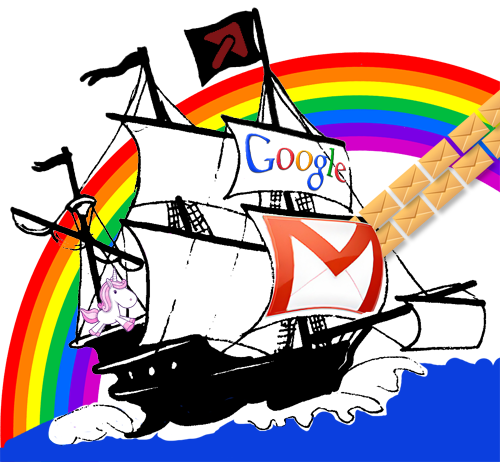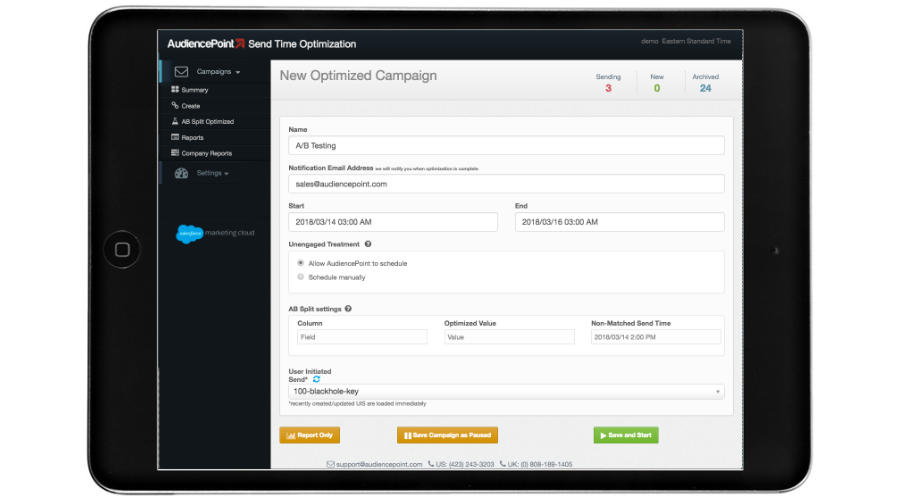AudiencePoint is thrilled to announce our new integration with Klaviyo! AudiencePoint is looking for partners to pilot our...
Is Email Scraping Illegal?
Email scraping involves automated tools extracting email addresses and other data from websites. While this method can be helpful for maintaining a high-quality email list, the legality of this practice is highly contentious and varies based on regional laws. In the U.S., email scraping often falls into a gray area, heavily dependent on how the data is collected and used, particularly concerning existing privacy laws.
Definition Of Email Scraping
Email scraping refers to gathering email addresses and sometimes other contact information with automated software. These programs scour web pages systematically, collecting emails visible on the internet. While it might seem straightforward, this practice raises significant privacy and ethical concerns, especially if the data collection is undisclosed or used without permission.
Legal Context In The U.S.
In the United States, no specific federal law outright bans all forms of email scraping, but legal issues often arise due to privacy concerns. The Computer Fraud and Abuse Act (CFAA) can be used to prosecute certain forms of email scraping, particularly when accessing data from platforms without authorization, which could be considered hacking. Additionally, many websites include in their terms of service a prohibition against unauthorized data collection, which could leave scrapers liable to civil litigation.
Moreover, using scraped emails for unsolicited messages could run afoul of the CAN-SPAM Act, leading to legal penalties. Therefore, while not strictly illegal, email scraping must be done with significant attention to both federal and state regulations, as well as web platform terms of service.
Implications For Businesses
For businesses contemplating the use of email scraping to compile contact lists, the risk assessment is critical. While acquiring lead information through such means might seem cost-effective, the legal ramifications and potential penalty fees can be financially detrimental. Indeed, a single minor infraction against scraping regulations could result in reputational damage and loss of customer trust in the brand. It is prudent for businesses to explore alternative, and compliant, methods of building email lists, such as AudiencePoint’s robust data solutions for ethical and effective email marketing campaigns.
Is Web Scraping For Commercial Use Legal?
In a digital era where data is king, web scraping emerges as a powerful tool for businesses seeking a competitive edge. However, the legal landscape surrounding its use, especially for commercial purposes, can be complex. In general, the legality of web scraping hinges on factors such as the intent, the way it is conducted, and the nature of the data being extracted. Understanding legal precedents and nuances can help companies navigate these murky waters and leverage data effectively while avoiding potential legal pitfalls.
Overview Of Web Scraping
Web scraping involves extracting large amounts of data from websites, often utilizing automated bots. These tools can collect a wide array of data, from pricing information and product details to user reviews and competitor content. While scraping itself is not inherently illegal, the methods and purposes for which it is employed can potentially breach the legal framework, jeopardizing a company’s operations.
Differentiation Between Personal And Commercial Use
The distinction between personal and commercial web scraping plays a significant role in determining its legality. When used for personal purposes, such as data aggregation for non-commercial research, scraping is less likely to raise legal concerns. Conversely, when companies engage in scraping to extract data for commercial benefit, such as tailoring marketing strategies or acquiring competitive information, the legal scrutiny intensifies.
Legal Precedents And Cases
Several landmark cases have shaped the legal outlook on web scraping. A notable instance is the court battle between LinkedIn and data analytics company hiQ Labs; the ruling reinforced the Computer Fraud and Abuse Act (CFAA). The courts determined that accessing publicly available information is legal. However, this decision specifically pointed to scraping openly accessible user data. It’s also essential to examine website Terms of Service (ToS), which may explicitly prohibit scraping.
Risks And Ethical Considerations
Understanding the balance between extracting data and respecting intellectual property rights is crucial. Scraping poses risks like infringing copyright laws, breaching contracts between website owners and users, and potentially violating privacy regulations. It’s recommended that companies initiate discussions with legal experts to assess potential compliance issues before embarking on web scraping ventures.
In summary, while web scraping for commercial use offers vast opportunities, it is accompanied by significant legal and ethical considerations. Businesses that understand and respect the legal boundaries and ensure compliance with data protection regulations can harness the potential of web scraping effectively and safely.
Is Web Scraping Legal In Europe?
The legality of web scraping in Europe is primarily governed by the General Data Protection Regulation (GDPR), which sets stringent requirements for the collection and processing of personal data. Web scraping involves the extraction of data from websites, which may include personally identifiable information (PII). Under GDPR, PII is protected vigorously, requiring data collectors to have a legal basis for processing such information, including consent or legitimate interest.
GDPR And Its Effect On Web Scraping
The GDPR has a significant impact on the legal landscape of web scraping in Europe. It requires organizations that process PII to comply with data protection principles aimed at safeguarding individual privacy. For web scraping to be legal under GDPR, it must adhere to principles such as data minimization, purpose limitation, and ensuring transparency with data subjects. Non-compliance with these principles can result in substantial fines, making it crucial for organizations to navigate these regulations carefully.
Comparative Analysis With U.S. Laws
Unlike the U.S., where data protection laws vary and are often less stringent, GDPR provides a comprehensive regulatory framework for data privacy in Europe. While U.S. laws like the CAN-SPAM Act focus on email marketing regulations, GDPR encompasses broader data protection measures, influencing not just email activities but all forms of data processing, including web scraping. The U.S. approach allows for more flexibility in data usage, whereas GDPR imposes strict controls, including the need for clear client consent.
Recent Legal Developments
Recent legal developments in Europe have further clarified the scope of web scraping under GDPR. A notable case is the ruling of the Court of Justice of the European Union (CJEU) requiring companies to demonstrate a lawful basis for data processing, including legitimate interests weighed against individual data rights. This places additional burdens on companies engaging in web scraping to justify their practices legally.
For email marketing professionals and businesses leveraging data for commercial purposes, understanding and adhering to GDPR requirements is crucial. AudiencePoint recognizes these complexities and offers robust data processing solutions that ensure compliance with GDPR, providing peace of mind to our clients. By utilizing AudiencePoint’s services, companies can effectively navigate the regulatory landscape while optimizing their marketing strategies.
Is Email Blasting Illegal?
Email blasting itself is not illegal per se, but it must comply with certain legal regulations to avoid being considered spam. The CAN-SPAM Act in the United States governs the rules and regulations regarding commercial emails, ensuring they meet acceptable legal standards. Failure to adhere to these standards can lead to significant fines and damages to both your brand reputation and email deliverability.
Definition Of Email Blasting
Email blasting refers to the process of sending a single email message to a large group of recipients simultaneously. While this can be an efficient marketing strategy to reach a wide audience, the manner of execution is critically important to ensure compliance with legal standards.
Regulatory Environment And CAN-SPAM Act
The CAN-SPAM Act sets forth several requirements for email marketers, including providing unsubscribe options, honoring unsubscribe requests promptly, and clearly identifying the email as an advertisement. Furthermore, it prohibits the use of misleading subject lines and requires a valid postal address in emails. Non-compliance with these provisions can render email campaigns illegal.
Consequences Of Illegal Email Blasting
Engaging in illegal email blasting exposes companies to legal actions, hefty fines, and damage to their reputation. Beyond the immediate legal implications, continual disregard for email regulations can harm email deliverability rates and sender reputation, impacting future campaigns. Effective monitoring and compliance with email regulations are therefore crucial for sustained email marketing success.
Elevate your email marketing with AudiencePoint, a cutting-edge platform offering expansive insights from billions of data interactions each year to refine your email strategies. Let us help ensure your emails land in the inbox, enhancing engagement and maximizing revenue potential. Schedule a demo now to transform your email campaign success.





